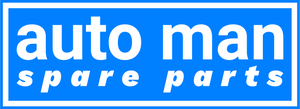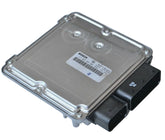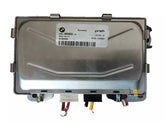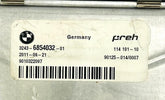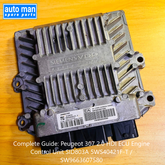Most Common Scams Buyers Face When Purchasing Used Auto Spare Parts Online – Causes, Prevention, and Solutions
Introduction
Buying used auto spare parts online is a popular and cost-effective way to maintain or repair a vehicle. However, not all sellers are genuine. Every year, thousands of buyers fall victim to scams—losing money, receiving fake or faulty parts, or even giving away their personal data unknowingly.
This guide will help you understand:
-
The most common scams in the used auto parts market.
-
The causes behind these scams.
-
Practical tips to protect yourself as a buyer.
-
Long-term solutions to minimize your risk.
Common Online Used Auto Parts Scams
1. Fake Listings or Non-Existent Products
Scammers post listings of rare or high-demand car parts at attractive prices. Once you pay, they vanish.
Red Flags:
-
No clear photos or watermarked images.
-
Too-good-to-be-true prices.
-
Seller has no reviews or feedback.
2. Selling Damaged or Incompatible Parts
Some sellers ship broken, used beyond repair, or incompatible parts, hoping buyers won’t inspect or complain.
Red Flags:
-
No return/refund policy.
-
Vague or no product description.
-
Claims of (universal fit) for specific parts.
3. Counterfeit or Non-OEM Parts
Some sellers advertise parts as (OEM) (Original Equipment Manufacturer) but deliver cheap replicas.
Red Flags:
-
No visible branding or manufacturer info.
-
Part numbers don’t match OEM databases.
-
Very low prices compared to market.
4. Fake Seller Websites
Fraudsters create realistic-looking eCommerce stores mimicking real suppliers.
Red Flags:
-
Recently created domain.
-
No contact details or customer support.
-
No HTTPS or SSL security on checkout.
5. Overpayment Refund Scam (Reverse Scam)
Buyer accidentally overpays with a fake check or hacked account and requests the seller to refund the extra. Once refunded, the original payment is reversed, and the seller loses both the part and the money.
This scam mostly targets sellers, but buyers too can fall into variations of overpayment fraud.
Causes Behind These Scams
-
Lack of Regulation: Many online marketplaces do not verify sellers thoroughly.
-
High Demand, Low Supply: Rare or expensive parts attract fraud.
-
Cross-border Transactions: International buying limits legal action or returns.
-
Buyer Inexperience: First-time buyers may not know how to verify part numbers or seller credibility.
-
Anonymous Platforms: Websites with little buyer protection allow fraud to thrive.
How to Avoid Getting Scammed
1. Buy from Reputable Platforms or Verified Sellers
Choose websites with buyer protection, verified reviews, and established reputations like:
-
AutomanSpareParts.com
-
eBay (Top Rated Sellers)
-
Car-part.com
-
OEM dealer stores
2. Check Part Number Compatibility
Ask the seller for the OEM number and cross-check it with your VIN or manufacturer's catalog. Always confirm:
-
Make, model, year.
-
Engine type.
-
Trim and region (US, EU, etc.)
3. Request Detailed Photos or Videos
Ask for close-up photos showing part numbers, connectors, and wear condition. Genuine sellers won’t hesitate.
4. Confirm Return & Warranty Policies
Avoid sellers who refuse returns or don't mention any guarantee. A 7–30 day return window is reasonable for used parts.
5. Use Secure Payment Methods
Avoid:
-
Wire transfers (Western Union, MoneyGram).
-
Crypto payments (Bitcoin, etc.)
-
Cash apps unless dealing with a verified local business.
Prefer:
-
Credit cards (buyer protection).
-
PayPal Goods & Services.
6. Read Reviews and Seller History
Search the business name on Google and TrustPilot. Read verified buyer reviews and look for patterns of complaint.
7. Avoid Unrealistic Prices
If it’s 50–70% cheaper than the average market rate—it's likely a scam or defective.
Solutions & What to Do if You’re Scammed
If You've Been Scammed:
-
Contact your bank or PayPal immediately.
-
Report the seller on the platform.
-
File a report at ic3.gov (if you're in the USA).
-
Leave negative feedback to warn other buyers.
Long-Term Prevention Tips:
-
Bookmark and shop only on trusted platforms.
-
Keep records of every purchase—screenshots, receipts, messages.
-
Use a separate credit card for online transactions.
-
Consider using escrow services for high-value parts.
Conclusion
While the internet has made buying used car parts easier, it's also opened the door to scams. But by staying informed, buying from trusted sellers, and verifying every detail, you can protect yourself and make safe, budget-friendly purchases.
At AutomanSpareParts.com, we’re committed to honesty and transparency—offering tested, genuine, and VIN-matched parts with buyer protection, shipping worldwide to the USA, France, Spain, Mexico, Germany, and Australia.
